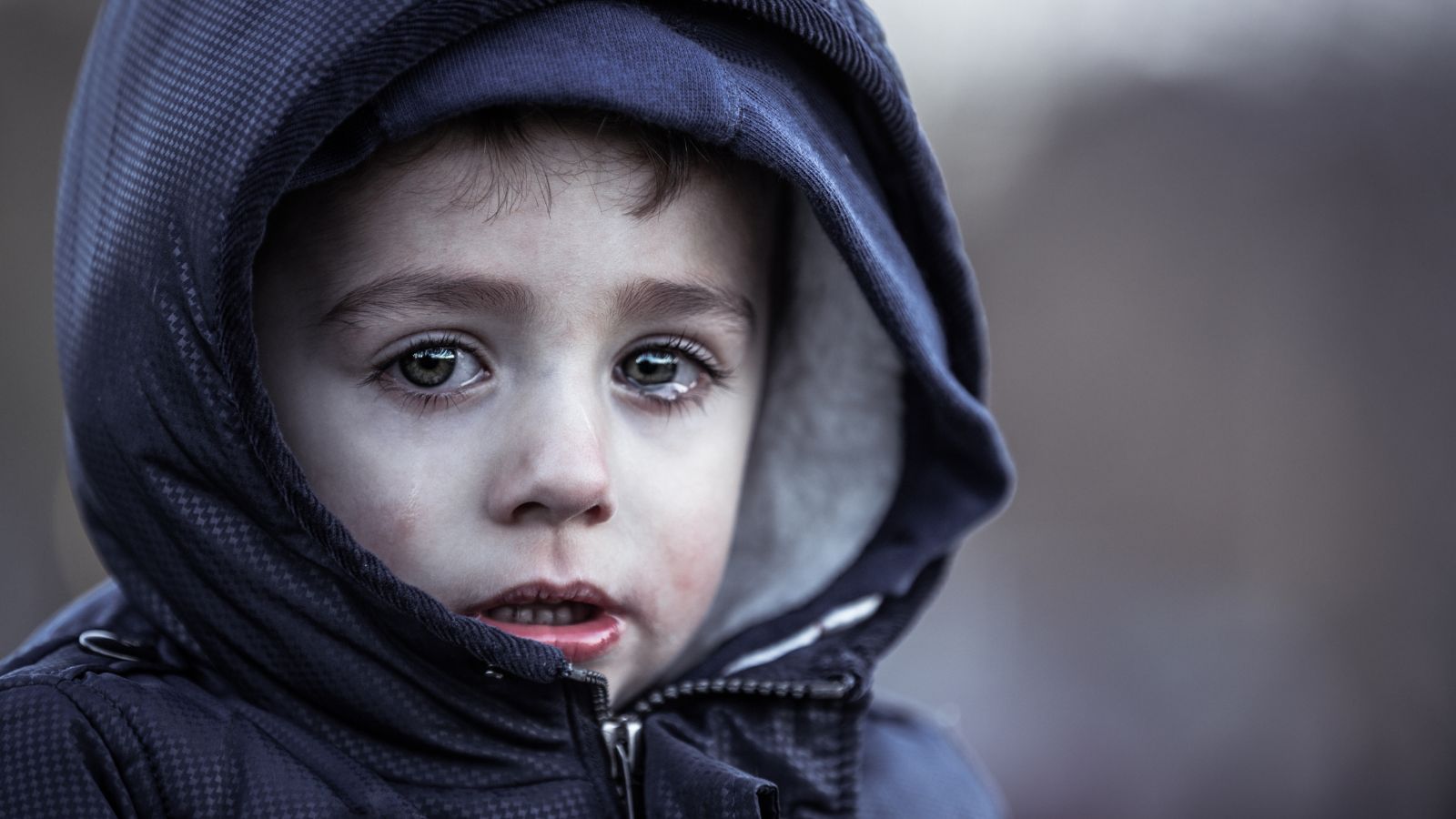Although we are all born with a unique personality style, the way we are raised has a huge bearing on our emotional development and ability to attach to others. Children aren’t born with all of the faculties they need to navigate the world around them or to manage the many emotions and feelings they have. For them to develop into healthy and emotionally mature individuals, they necessarily need guidance. Not all parents are the same, nor are their parenting styles. Therefore, not all of us get the stability, role modeling, or support that we need to form healthy relationships. These are signs that you might not have gotten all the love you needed at a critical time.
Self Doubt

Children look to their parents and caregivers to gain validation and guidance. Unconditional love means that you understand that no matter what you do, you are worthy of love. Those who don’t get that type of stability and validation can spend the rest of their lives searching for approval. They doubt whether they are truly lovable.
Indecisiveness

When you aren’t afforded validation in the informative years, you never gain a sense of self and self-assurance. Those who are always looking for approval tend to have a hard time being decisive in their decisions. Indecisiveness is actually a decision. That decision is to never feel confident enough to do something on your own for fear of reprisal or unacceptable.
Difficulty Expressing Emotions

Most humans have to deal with a lot of different emotions at once. Sometimes, it is difficult for someone to know exactly how they feel. When you are young, you need the guidance of your parents. Their job is to help you sort and process your feelings. Those who were never guided through the turmoil of sorting through their feelings have a very hard time understanding what they want and an even harder time expressing those needs and desires to others.
People Pleasing

Children who are not given enough love and attention when they are young will often become pleasers. People pleasers are born out of the need to gain approval from those around them. They do so to make up for what they didn’t get when they needed it most. They are okay with sacrificing their own needs because that likely was their way of life early on. The only way that they got attention was by being exactly and doing exactly what they were told to do.
Fear of Being Abandoned

Children who don’t get security and unconditional love never feel as if they are fully attached to others. Attachment styles are how we form bonds with others and, in some instances, the way that we don’t. When a child doesn’t receive unconditional love, they understand that their care and love can be pulled at any moment. Since the fear is there throughout their childhood, it continues into their adult relationships. It can cause a lot of problems attaching to others.
Extreme Independence

Those who fear abandonment usually go one way by clinging to others or going the other by pushing people away. Sometimes, when you don’t get the love that you need early on, you decide to go it alone. The constant rejection felt as a kid turns to an extreme independence where you rely on only yourself. It is not uncommon to develop an avoidant or dismissive attachment style. Being too independent can isolate someone and perpetuate feelings of isolation and loneliness.
Low Self-Esteem

As a child, you are constantly looking for approval and validation. When you never get it, you tend to internalize it as a failure. You also naturally surmise that you aren’t worthy of praise, attention, or love. Those who didn’t get the unconditional love they needed for stability will often undervalue themselves in relationships, which tends to lead to a self-fulfilling prophecy due to perceived rejection.
Fear of Intimacy

When you aren’t given the love you need as a child, you do a lot of hiding emotionally. You stop putting yourself out there to be hurt and tend to close yourself off. In doing so, however, you make it very hard to create intimacy in your adult relationships. Someone who is guarded with their emotions tends to have a hard time letting others in and being vulnerable, which are both necessary to form healthy, mature relationships.
Lying

When someone doesn’t feel lovable growing up, they try to hide who they are and create an alternate person and reality that is lovable and strong. Those who have to hide themselves away because they feel unworthy tend to become compulsive liars out of fear that their real selves will not be accepted. It is hard to form a bond or attachment with someone who is never genuine or honest.
Negativity

Children who are not afforded the love they need tend to engage in negative self-talk. Due to their low self-esteem and lack of self-worth, they throw out their negative side almost to buffer you from discovering it on your own and seeing that they aren’t worth it. We can all be down on ourselves, but someone who wasn’t given the love they needed as a child is their worst enemy.
Constant Need to be Assured

A child who isn’t given unconditional love always feels as if love is, in fact, conditional. They are also never afforded stability or approval, which can internalize feelings of insecurity. A person who isn't given the emotional tools they need early on never learns to be confident in who they are or feel the self-worth necessary to be okay with themselves regardless if others are okay with them or not.
An Obsessive Need to Measure Up

Children who are constantly looking for approval and never get it will often be obsessive about measuring themselves against others. Because they have a hard time feeling their own self-worth, it can often lead to extreme feelings of jealousy and a hyper-exaggeration of their own value and achievements.
Cynical

Those who couldn’t trust that their caregivers would be there from day to day often become cynical about the world and people in general. Because their role models usually only paid attention to them when it was beneficial, children who weren’t loved enough are guarded and suspicious when someone is providing love.
Obsessively Controlling

Children who are not provided love and stability often feel the need to obsessively control things in their adult lives. Feeling a sense of powerlessness in their informative years makes them crave a need for predictability and control. They often try to exert their control over all aspects of their life to protect themselves from more trauma.
Indulgent Behaviors

Growing up never getting the love and attention you crave can lead to a host of unhealthy and indulgent behaviors. Wanting to escape the reality of their feelings, they are prone to avoiding reality, numbing themselves to the world around them, and will do anything to avoid the hurt that they feel carried over and carrying on into their adult lives and relationships.
Overanalyzing

When a child is not given the love and validation that they need growing up, they tend to spend a lot of their adult lives overanalyzing the actions of others. For someone who was never taught how to navigate their feelings or given unconditional love, it is torture to always worry about what others are thinking. Most importantly, to worry about what people are going to do in reaction to what they have done. Most kids who were not given the love they needed in childhood are prone to anxiety and depression due to always trying to interpret social cues that they don’t fully understand.
Compliments are Uncomfortable

Someone who is never given the love and validation they need from their parents often feels very uncomfortable with compliments. Because they did not feel loved and were not given the attention they so desperately needed, they became okay with not being loved and valued. When someone does give them the validation they need, they don’t know how to handle or accept it.
Self Sabotaging

People who feel very little self-worth often self-sabotage. Because they believe that they are not good enough to be successful, they often take steps to ensure that they are not. Self-sabotaging is a protective mechanism that many children who were not given enough love develop, believing it will save them from the disappointment they have come to be okay and comfortable with.
Overly Apologetic

Those who weren’t given enough love tend to apologize for everything, even those things that aren’t their responsibility or fault. Due to their excessive need to be loved unconditionally, they are willing to take the fall and make things right even when it isn’t their job either. Apologies become a natural reflex to the fear of disapproval or conflict.
Avoidance

For a child who hasn’t had the stability necessary to feel unconditional love, avoidance becomes a way of survival. Conflict of any type sets in panic and fear for someone who doesn’t feel safe and secure growing up. Over time, however, avoiding things and letting them slide builds resentment and anger. It also can lead to disingenuous emotions and an inability to form healthy and authentic relationships.
Most children are born with the capacity to love and be loved, but it does need to be fostered and developed. If they are not given the tools they need in their childhood, it is hard for them to grow into healthy, happy, and emotionally functioning human beings. Although someone’s upbringing does not define who they eventually become, it does help to shape their habits and tendencies. The good news is that they can learn all of the emotional tactics they need at any point if they are willing to put in the work.
18 Behaviors Branded as Low-Class by Society

18 Behaviors Branded as Low-Class by Society
18 Reasons Gen Z Believes They Should Be Paid Without Working

18 Reasons Gen Z Believes They Should Be Paid Without Working
18 Ways Parents Raise Failed Adults

18 Ways Parents Raise Failed Adults
18 Work Practices Millennials & Gen Z Refuse to Accept

18 Work Practices Millennials & Gen Z Refuse to Accept
23 Personal Topics You Should Never Share With Others

